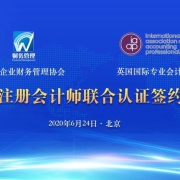UAE dropped from financial crime risk register
A global financial watchdog has dropped the UAE from its list of countries at risk of facilitating illicit money flows and other financial crime.
The Financial Action Task Force (FATF) has dropped the UAE from its so-called ‘grey list’ of 20-plus nations considered risky.
The FATF placed the emirate countries under scrutiny in 2022, when the FATF highlighted the risk of money laundering and terrorist financing involving banks, precious metals and stones as well as property.
It had made getting off the list a priority, bolstering its anti-money-laundering efforts in a drive spearheaded by the minister of foreign affairs Abdullah bin Zayed Al Nahyan. He said: “This success is the outcome of collaborative efforts by the ministries, federal and local government entities, and the private sector, to achieve the leadership’s directives and further strengthen the country’s leading position and international competitiveness.”
John Kartonchik, a director at UAE think tank Re/think, said the move could boost confidence in the country and attract more money from overseas. “Investors may feel more secure,” he said.
And Mohamed Daoud, Industry Practice Lead at Moody’s Analytics, said: “The UAE’s removal from the FATF’s grey list reflects the country’s commitment to fighting financial crime and sanctions evasion and will boost trust in its financial system.
“Even so, don’t expect the international compliance community to immediately change the way it interacts with the country. Think of it as a gradual thawing, not an instant spring.”
Daoud added that the full benefits of the removal from the grey list may lag behind the official announcement as foreign institutions will take time to update their anti-money laundering and counter-terrorist financing (AML/CFT) measures.
Reuters said that despite being grey-listed, the UAE continued to attract the wealthy individuals from around the world, and it is an increasingly popular destination for cryptocurrency firms and Russians in the wake of the war with Ukraine.
However, the European Union is continuing to list the UAE as a high-risk country for money laundering and terrorist financing, alongside other countries including South Africa, North Korea and Afghanistan.
In 2023 ESMA, the EU’s financial markets watchdog, barred European banks and others from clearing trades with the Dubai Commodities Clearing Corporation.
Jonny Bell, director of financial crime compliance and payments at LexisNexis Risk Solutions, said the UAE would likely continue strengthening its anti-money laundering and counter-terrorism financing measures.
He added that there is increasing competition among Gulf states to develop non oil sectors such as financial services, trade and logistics, and tourism. Attracting money from abroad is a central part of that effort, he said.
Measures taken by the UAE include increasing financial investigations and prosecutions, boosting international cooperation, and aligning virtual asset regulation with international standards.
UAE GDP to grow by 4% in 2024
The economies of the UAE and other Gulf countries will outpace the global forecast for 2024, helped by the domestic multi-year investment cycle in the region, according to First Abu Dhabi Bank’s Global Investment Outlook (GIO) 2024 Report: ‘Making a positive impact’.
Despite recent geopolitical headwinds and muted global recovery, FAB expects national and regional growth to be driven by the robust demand in tourism, real estate, logistics and manufacturing sectors.
FAB said the UAE’s GDP grew 3.7% in 2023 and is predicting it will grow 4% in 2024 – almost double the IMF’s global forecast 2.1% for the United States in 2024.
The GIO report, written by the bank’s industry experts, examines the current global economic and investment environment, providing insights into key macroeconomic trends.
FAB’s also said that the Gulf Cooperation Council (GCC) countries – the UAE, Bahrain, Kuwait, Oman, Qatar and Saudi Arabia – will experience good growth in non-oil GDP, with 3.4% expected in the medium term as countries in the region continue to diversify their economies.















